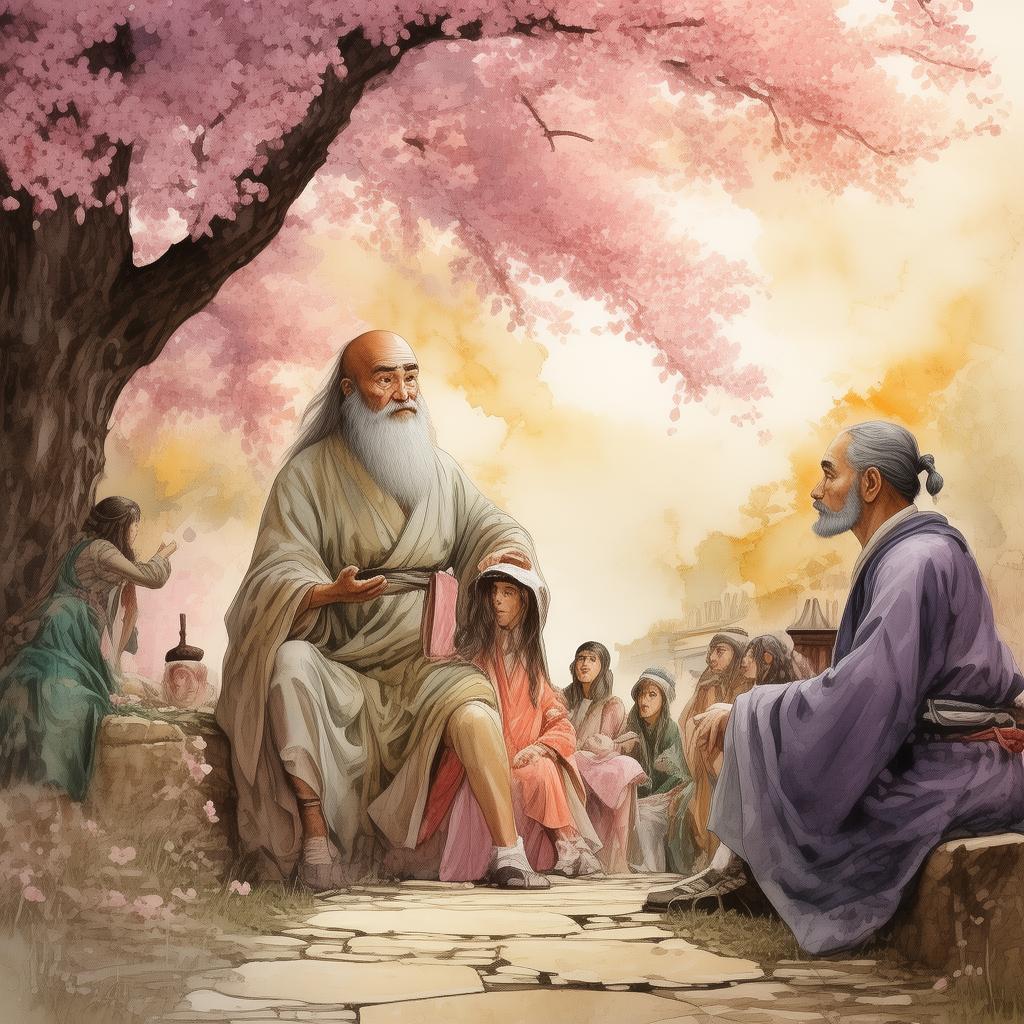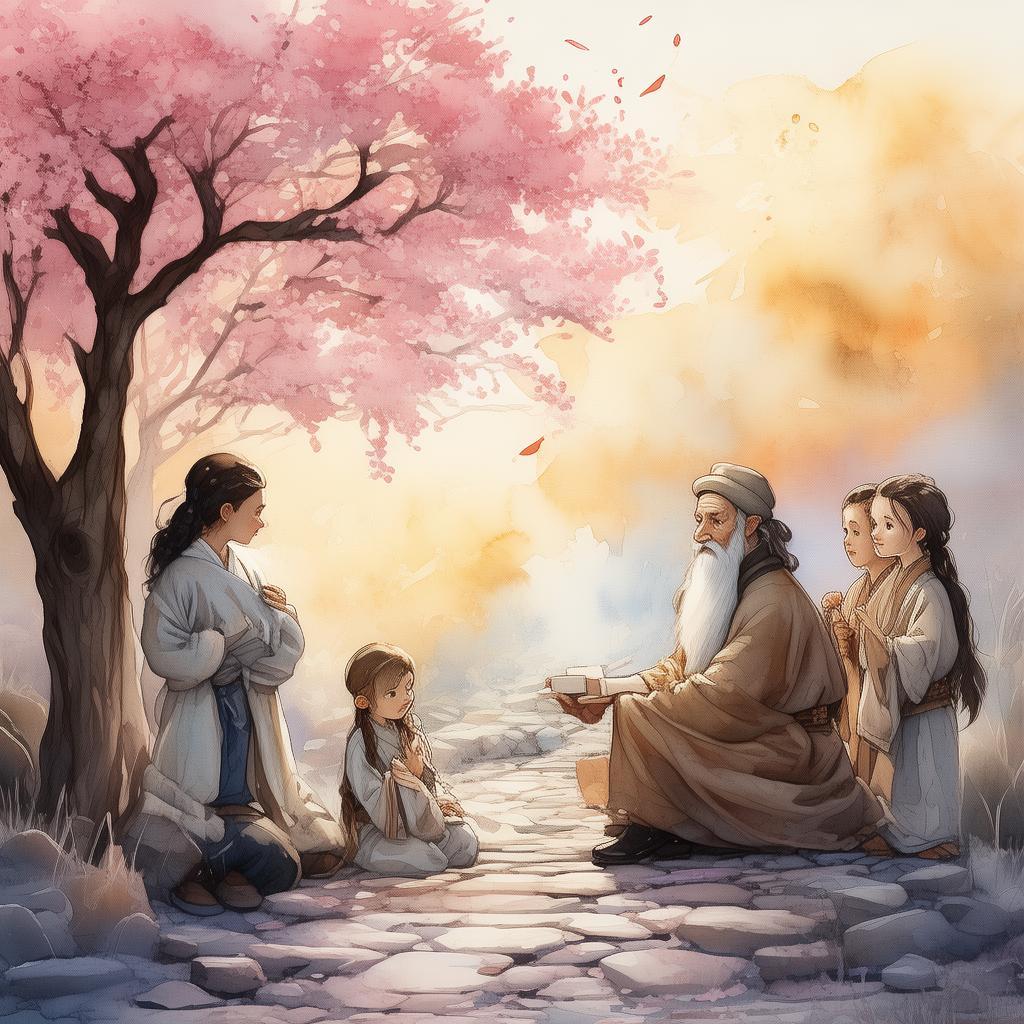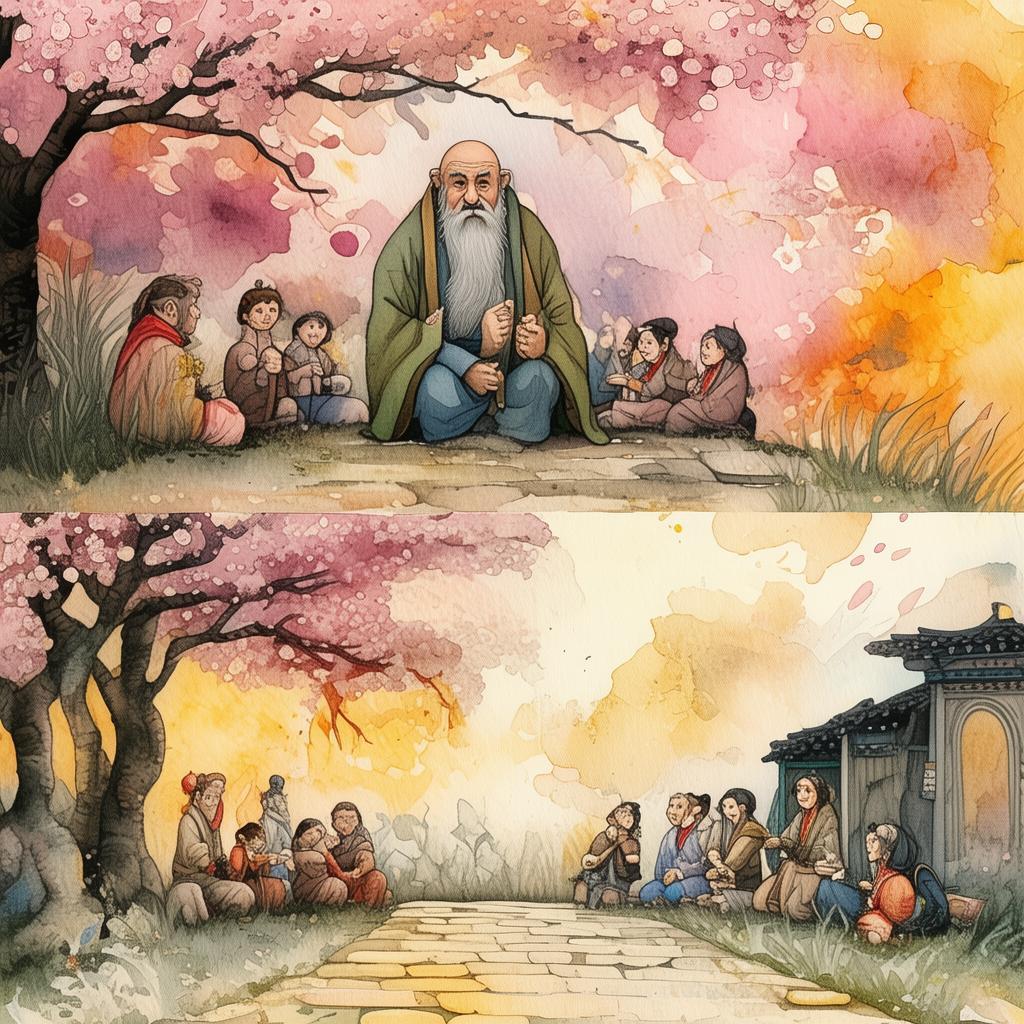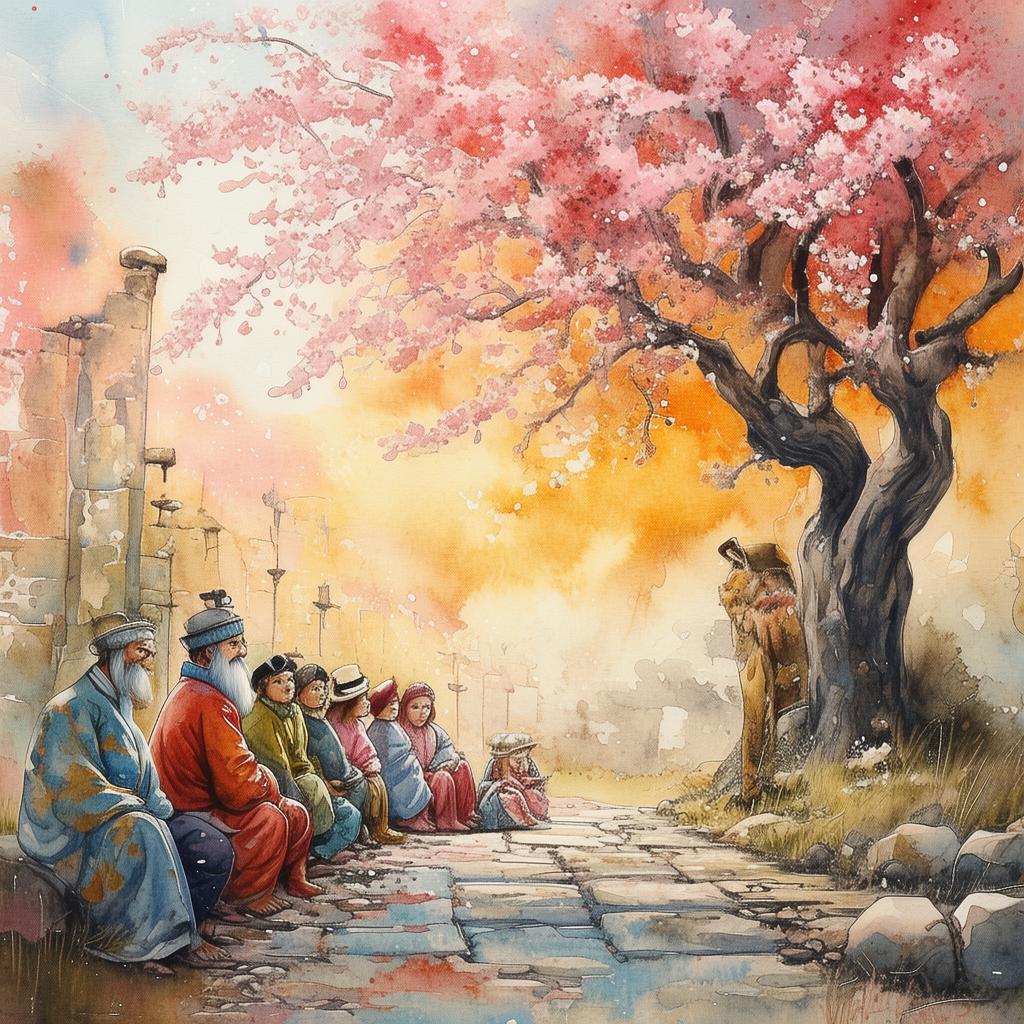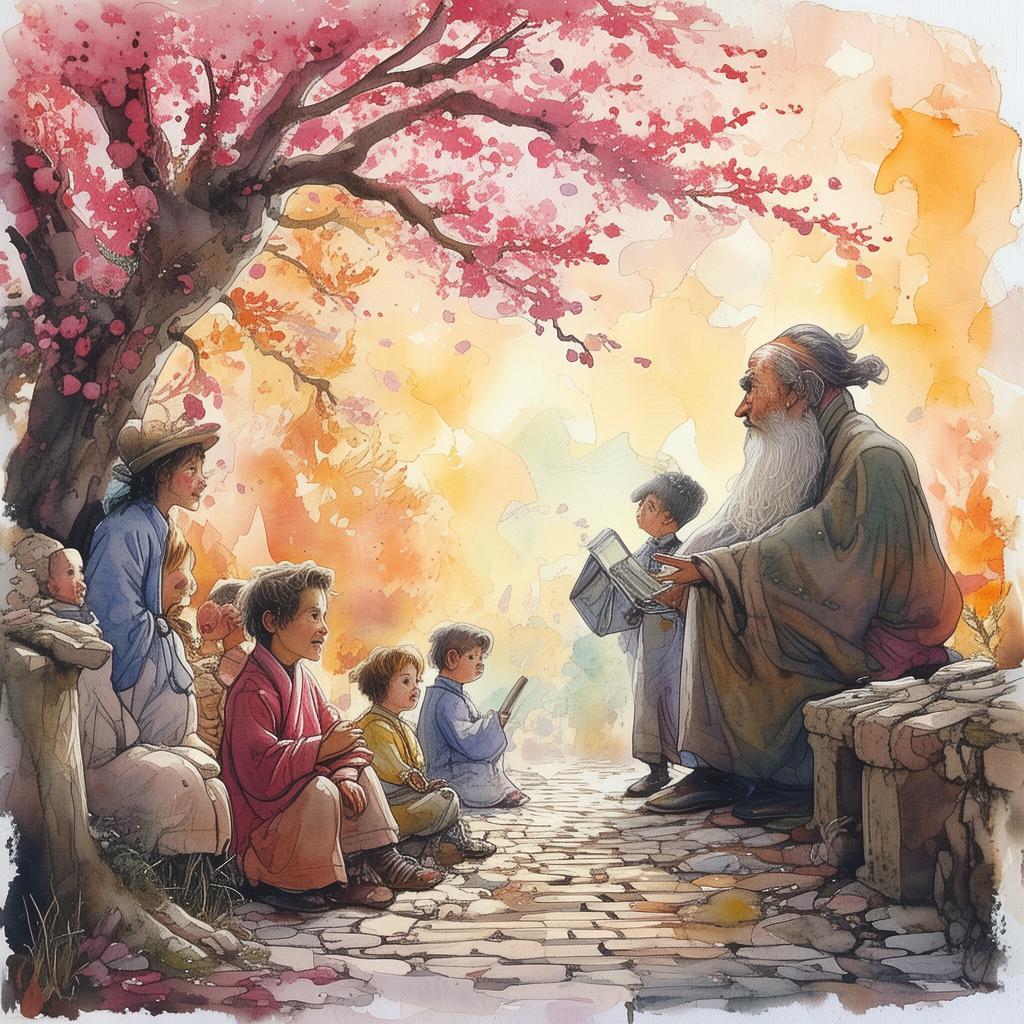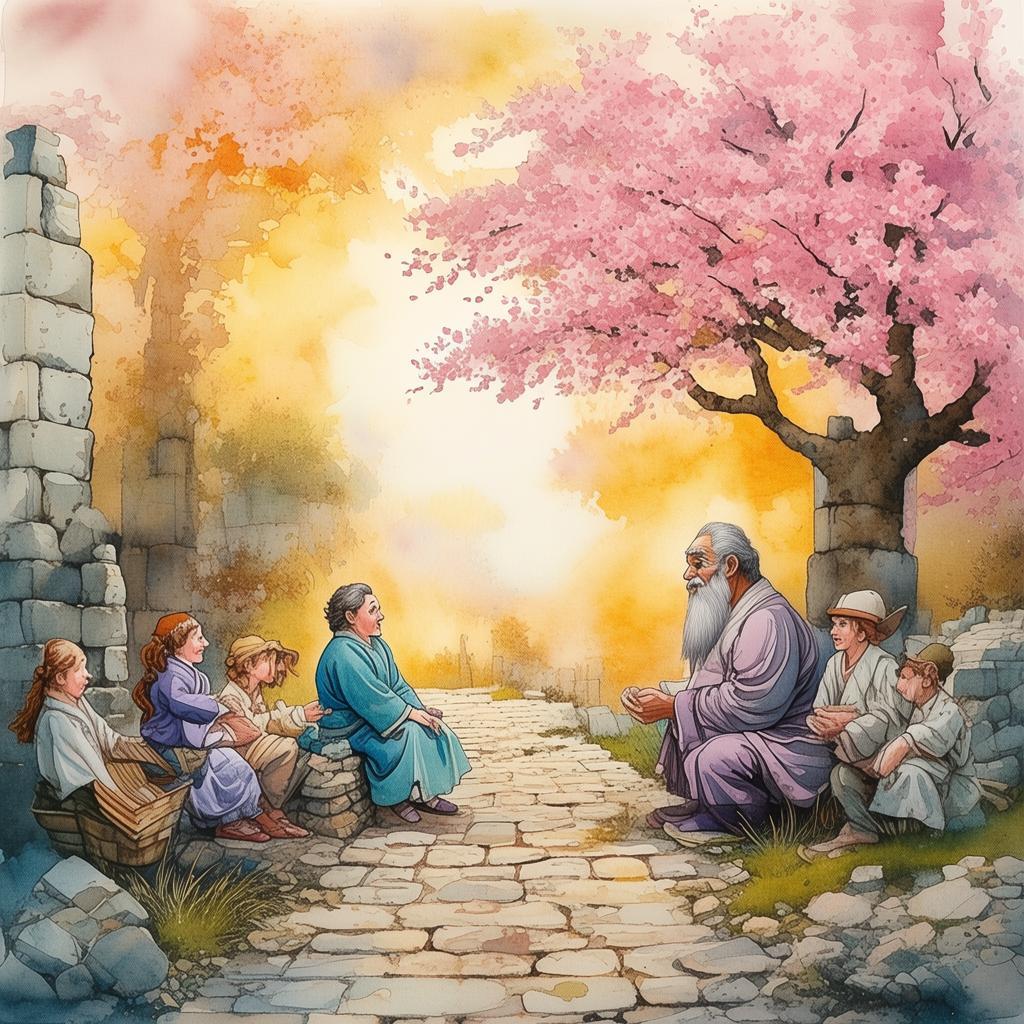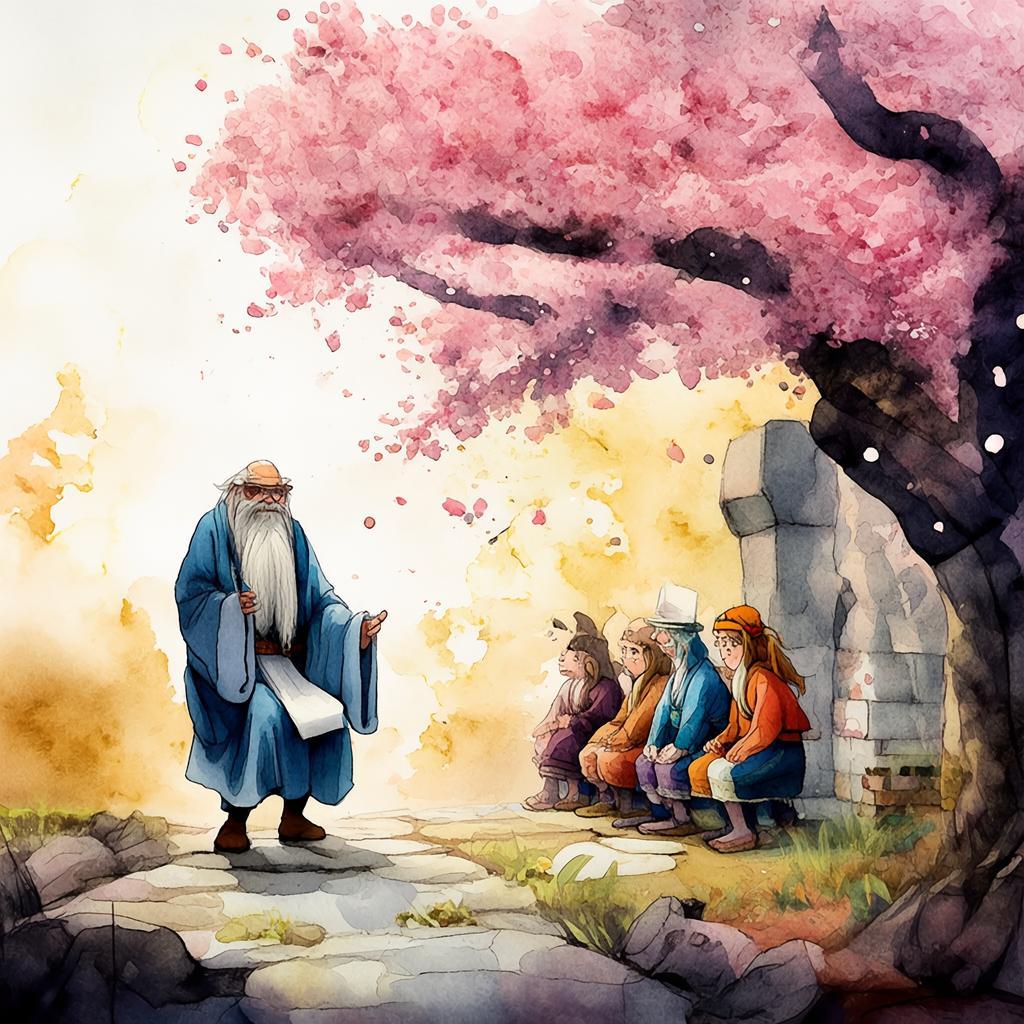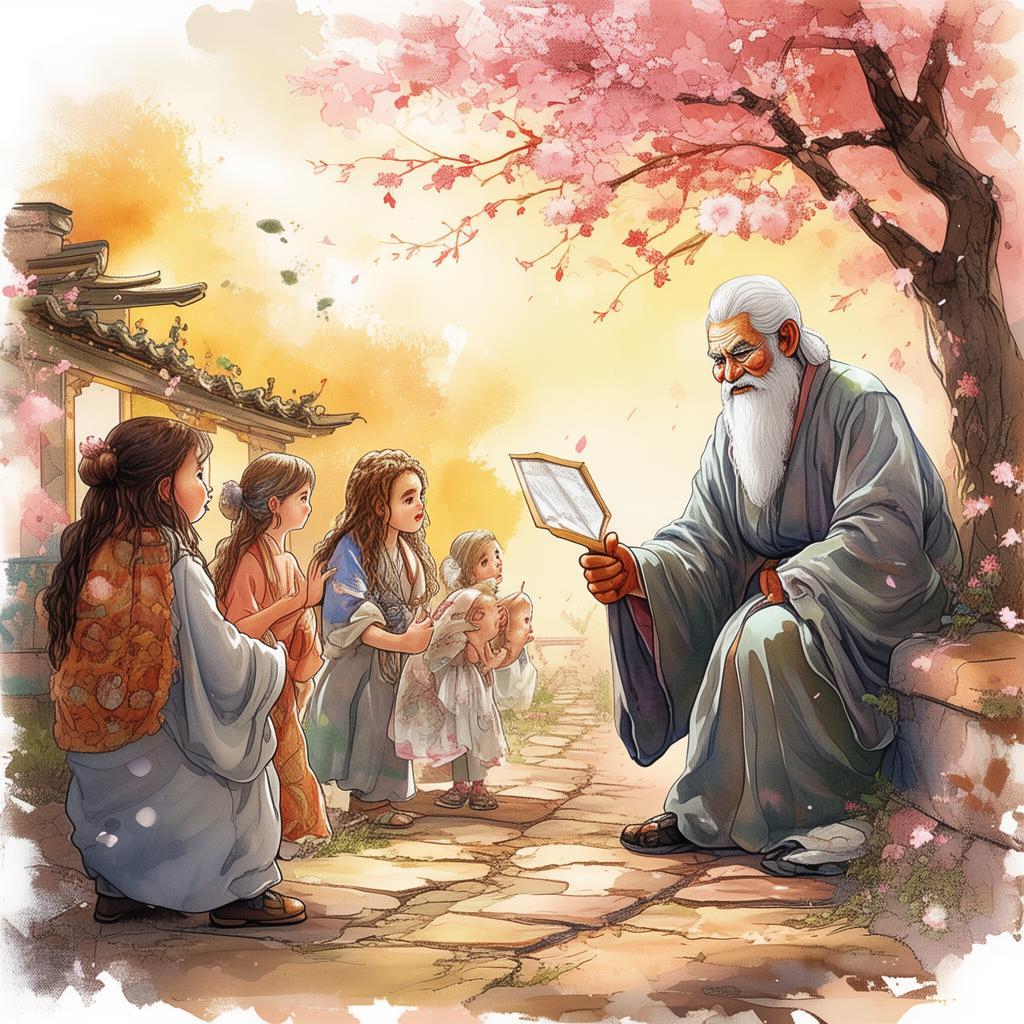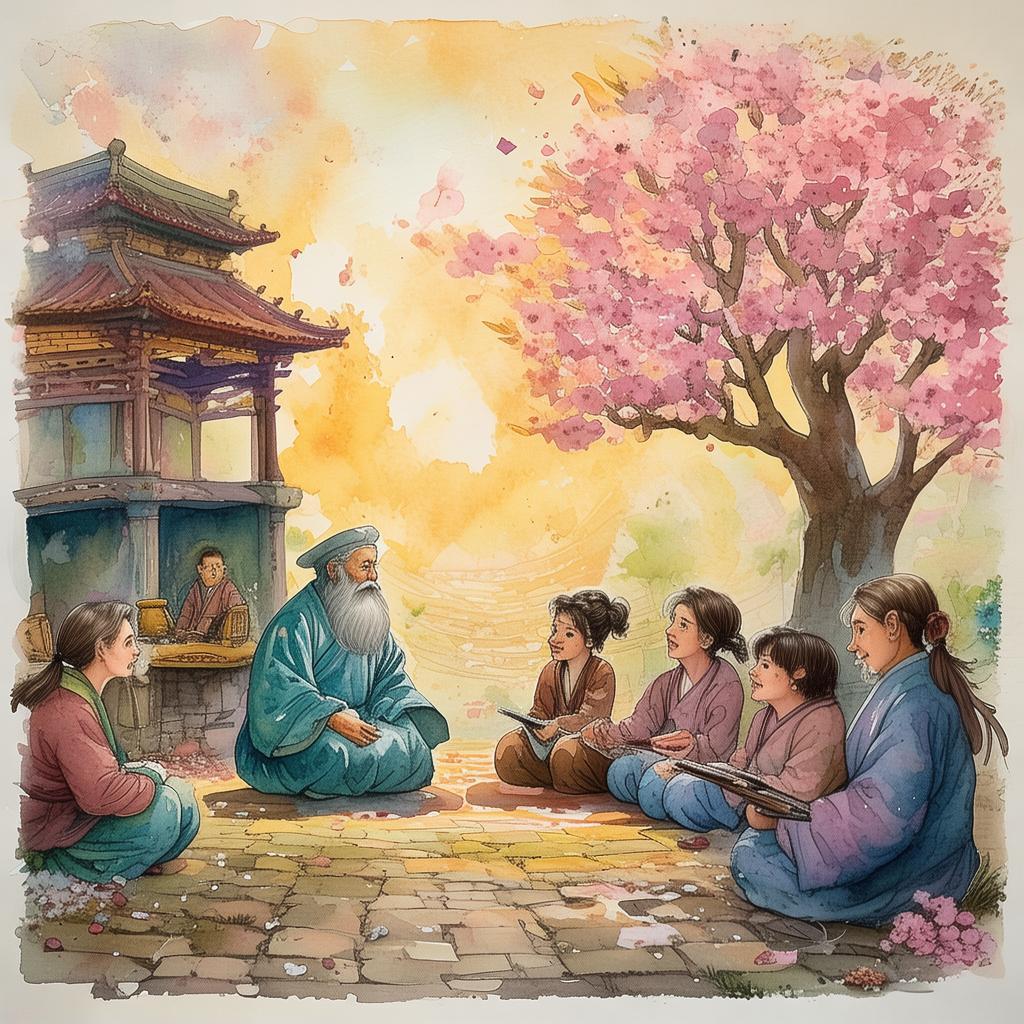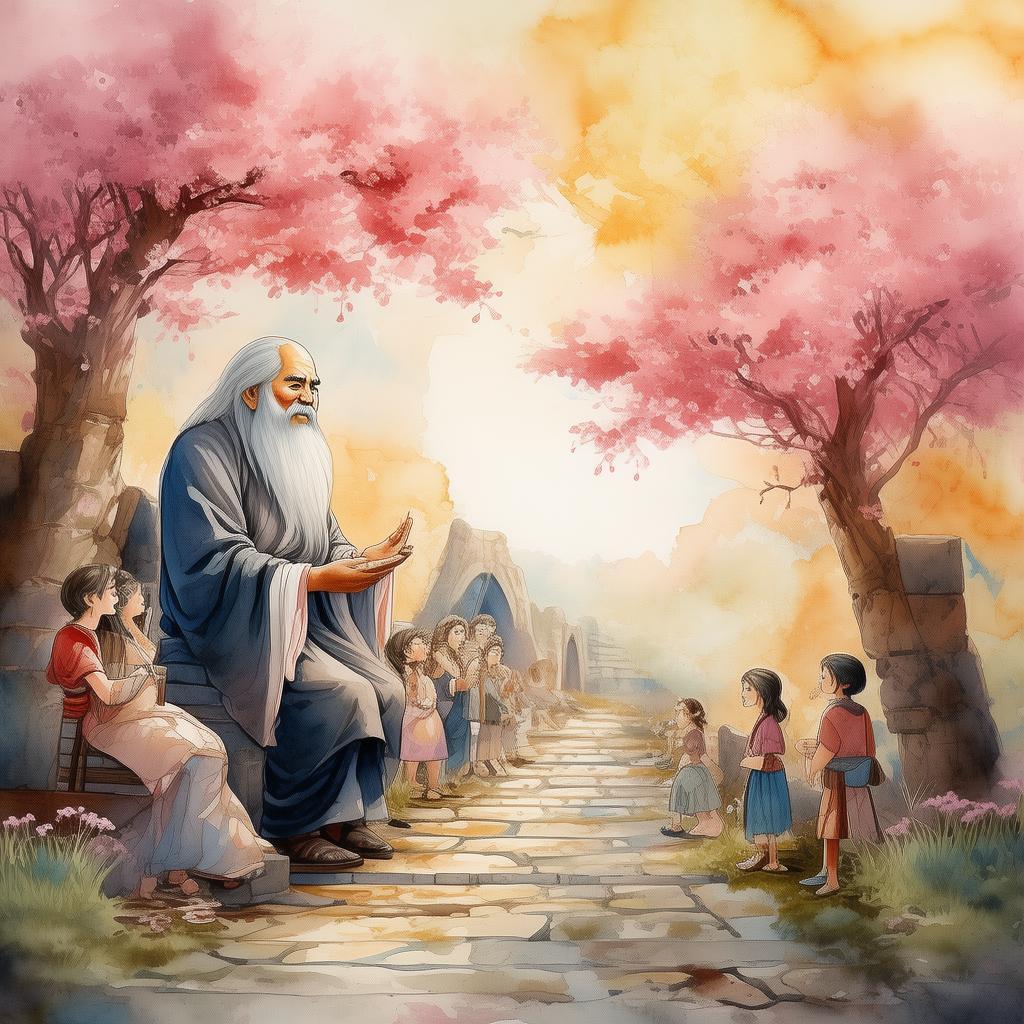The Zen of Zero Zhuangzi: The Empty Pot
In the ancient kingdom of Chu, there lived a young scholar named Ming. He was known for his insatiable curiosity and his quest for wisdom. Ming had heard tales of the great sage Zhuangzi, whose teachings were said to reveal the deepest truths of the universe. Determined to meet this sage, Ming set off on a journey, traversing mountains and deserts, until he reached the serene village where Zhuangzi resided.
As Ming approached the humble abode of Zhuangzi, he noticed a peculiar sight: a pot, seemingly empty, resting on a stone table. Intrigued, he asked Zhuangzi, "Sage, why do you have an empty pot here?"
Zhuangzi smiled, his eyes twinkling with wisdom. "Ah, Ming, this pot is not empty. It holds the essence of the universe."
Ming was puzzled. "But it is visibly empty. How can it hold the essence of the universe?"
Zhuangzi replied, "Consider the nature of the pot. It is empty within, yet it serves its purpose. The emptiness within allows it to hold water, to pour tea, to nourish life. Emptiness is the foundation of all things."
Ming pondered this for a moment, then asked, "So, you are saying that emptiness is the key to wisdom?"
Zhuangzi nodded. "Indeed, Ming. Emptiness is the source of all creation. It is the space that allows the universe to expand, the silence that gives voice to the world. Without emptiness, there would be no existence."
Ming's mind raced with questions. "Then how do we achieve this emptiness?"
Zhuangzi took a deep breath, his voice filled with a profound calm. "Emptiness is not about physical space; it is about the mind. It is the state of being that allows us to see beyond the surface, to understand the paradoxes of existence. It is the realization that fullness and emptiness are one and the same."
To illustrate his point, Zhuangzi told Ming a story:
Once upon a time, there was a potter who was very skilled at his craft. He made pots of all shapes and sizes, each one perfectly formed. One day, the potter was asked to make the most beautiful pot in the land. With great effort, he crafted a pot that was exquisite in form, but it was too fragile to hold anything.
The potter realized that the pot was not truly beautiful because it was unable to serve its purpose. He then made a pot that was simple and unadorned, yet it was strong and capable of holding water. This pot, the potter concluded, was truly beautiful because it was in harmony with its essence.
Ming listened intently, his heart filled with awe. "I understand now, Sage. The pot is a metaphor for life. We must embrace our emptiness, our vulnerabilities, to truly fulfill our purpose."
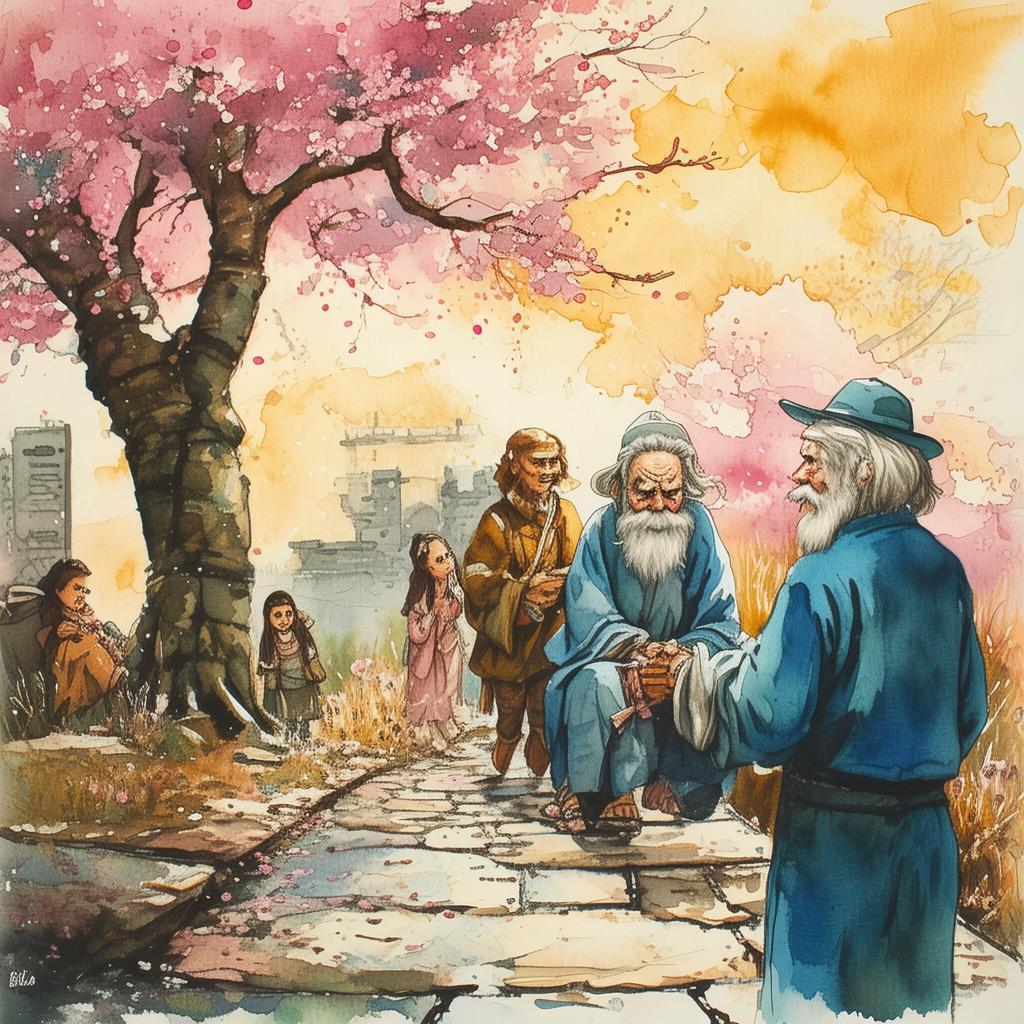
Zhuangzi smiled warmly. "Exactly, Ming. The Zen of Zero is not about being without, but about being with. It is the realization that the essence of life is found in the spaces between, in the quiet moments, in the emptiness."
Ming spent many days in the presence of Zhuangzi, learning from his words and observing his actions. He noticed that the sage lived a simple life, yet his presence was filled with a deep sense of fulfillment and peace.
One day, Ming approached Zhuangzi with a question. "Sage, how do we apply the Zen of Zero to our daily lives?"
Zhuangzi looked at Ming and said, "Live each moment with awareness. Embrace the present, for it is the only reality. Let go of the past and do not worry about the future. In this way, you will find the emptiness that holds all things."
Ming nodded, understanding dawning upon him. He realized that the sage's teachings were not just about philosophy; they were about living in a way that was true to oneself and the world.
As Ming prepared to leave the village, Zhuangzi handed him the empty pot. "Take this with you, Ming. It is a reminder of the Zen of Zero, the emptiness that holds all things."
Ming took the pot, feeling its weight in his hands. He realized that the pot was not just a symbol; it was a key to unlocking the wisdom that had been hidden within him all along.
With newfound clarity, Ming returned to his village, living a life that was in harmony with the world around him. He shared Zhuangzi's teachings with others, helping them to find the emptiness that held their true essence.
The story of Ming and the Empty Pot spread far and wide, becoming a parable that was cherished by many. It taught that the essence of life was found in the spaces between, in the emptiness that allowed for growth, for understanding, and for peace.
And so, the Zen of Zero Zhuangzi's Zen Zenith continued to inspire, reminding all who heard it that the true beauty of existence lay not in the fullness of things, but in the emptiness that made them possible.
✨ Original Statement ✨
All articles published on this website (including but not limited to text, images, videos, and other content) are original or authorized for reposting and are protected by relevant laws. Without the explicit written permission of this website, no individual or organization may copy, modify, repost, or use the content for commercial purposes.
If you need to quote or cooperate, please contact this site for authorization. We reserve the right to pursue legal responsibility for any unauthorized use.
Hereby declared.
